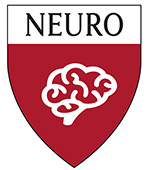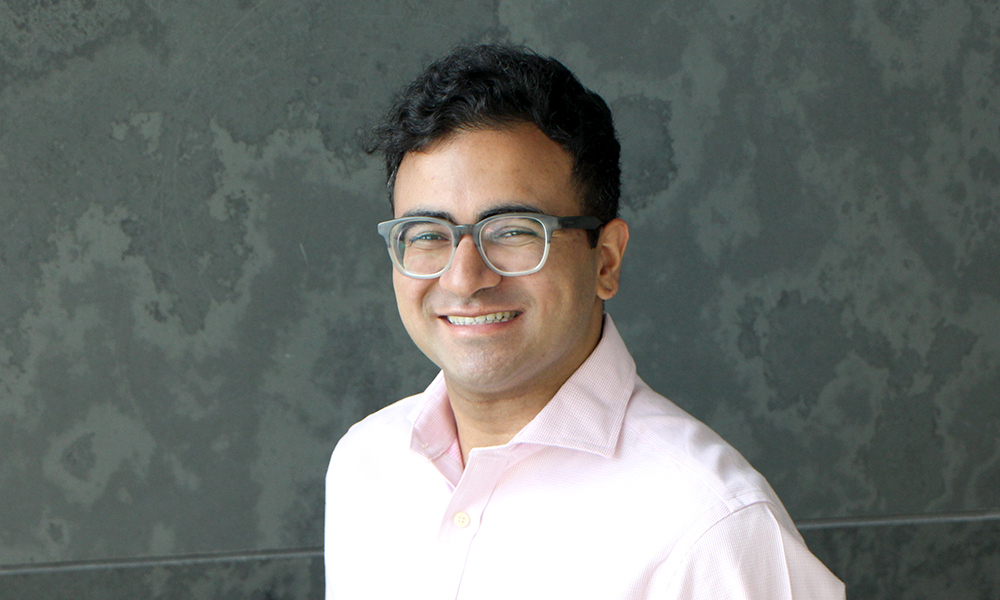Deepak Singh’s education took a turn during his first year at Harvard when he was diagnosed with glaucoma, an incurable disease that causes damage to the optic nerve. The disease shook up his life, prompting him to explore existential philosophy and the roots of intelligence. After persevering through a pandemic, he is graduating this year with a joint concentration in Computer Science and Neuroscience with a secondary in Philosophy and has been named as one of three 2023 recipients of the Taliesin Prize for Distinction in the Art of Learning.
Established in 2020, the Taliesin Prize recognizes three graduating seniors who make bold and creative curricular choices and exemplify curiosity throughout their educational career. “I’m really happy to have received the Taliesin Prize!” Singh says. “Receiving the prize made me reflect on my academic journey in a way that I hadn’t previously. It’s funny how neatly the narrative of my education seems to come together, given there was barely a plan and I was really just doing what excited and inspired me.”
“Deepak is an exceptionally talented scholar with a record of exploration and success across academic boundaries,” says Neuroscience Concentration Advisor Ryan Draft. “He completed a joint concentration with computer science, which is uncommon, as well as a secondary in Philosophy. Moreover, he took a wide range of classes from different divisions, including economics and government. His breadth is impressive and did not come at the expense of his training in the life sciences. His interest in biology is deep: apart from his integrated thesis on neural network mechanisms he is running a separate start up project (unrelated to his thesis) to use machine learning to predict new molecular targets for glaucoma. His path at Harvard is striking and sets an inspiring example for intellectual curiosity and engagement.”
After his glaucoma diagnosis in his first year, Singh had to leave Harvard to recuperate from a surgery. When he returned, he sought solace in the study of philosophy. “Although I fell in love with philosophy, I quickly grew tired of treating my education as therapy by fixating on my suffering,” he recalls. “I left theology behind for law, metaphysics, and finally, the mind, which as the source of all intelligent thought, was my greatest fascination.”
“But the answers philosophy offered were unsatisfyingly divorced from reality,” he continues. “To understand intelligence, I needed to build it. After a pandemic-stricken year at home learning to code, I spent my junior year exploring computation, learning, and their physical implementations in the brain. At first, neuroanatomy was a source of inspiration for my own neural networks, but it soon transformed my understanding of my own condition.”
Singh’s curiosity led him to join the Kreiman Lab as a deep learning researcher. He has since published original research at conferences like ICLR and was recently awarded summa cum laude grade for his thesis “Synaptic Failure is a Flat Minima Optimizer.” In his senior year, he has pursued coursework in subjects that will enable him to work on biotechnologies treating glaucoma.
After graduation, Singh will be working on his startup full-time. The startup is so new it does not yet have a website, but Singh is looking for potential collaborators. “I’m building a generative simulator for phenotypic screens to accelerate the discovery of novel neuroprotective and regenerative drugs for glaucoma,” he says. “We’ve already made the largest dataset of retinal ganglion cell death ever, as well as assembled a team of ophthalmology pioneers from Harvard Medical School and Johns Hopkins.” Singh adds that he is looking for collaborators with experience in computational biology and that anyone who is interested should reach out to him.
Reflecting on his undergraduate experience, Singh expressed gratitude toward several people across Harvard departments. “I’d like to especially thank Gabriel Kreiman and Sean Kelly,” he says. “Gabriel really gave me the confidence to pursue machine learning research and has been an invaluable mentor. Sean’s classes on Heidegger have spurred some of the best conversations of my life, and I think about concepts from those classes daily…I’d like to thank the whole Neuroscience concentration (and especially Ryan Draft) for their support of my education.”
“Harvard has made the biggest problem in my life finally seem tractable,” Singh says. “My senior year courses on neuroplasticity, stem cell regeneration, and drug discovery have prepared me to realistically devote my life to curing glaucoma by combining machine learning and biotechnology. Why we suffer is a question I have not answered, and likely never will. What to do in the face of suffering, perhaps a more important question, is what my Harvard education has empowered me to answer.”



